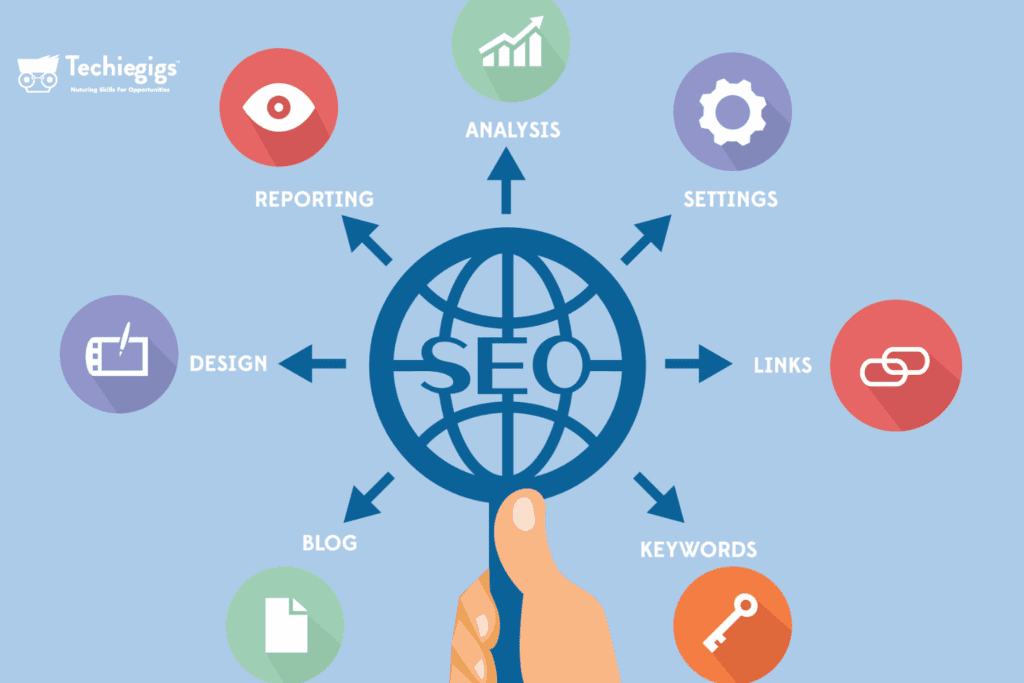Beginner’s Guide to Search Engine Optimization (SEO) Success
As more and more businesses shift their operations online, search engine optimization (SEO) has become a vital aspect of digital marketing. But what exactly is SEO, and how can beginners get started? In this beginner’s guide to SEO success, we’ll explore the basics of SEO, why it’s important, and how you can begin optimizing your website for search engines.
Table of Content
What is Search Engine Optimization (SEO)?
Search engine optimization, or SEO, is improving the visibility and ranking of your website in search engine results pages (SERPs). Search engine optimization aims to help your website appear higher in search results when someone types in a relevant keyword or phrase.
SEO is the short form for “Search Engine Optimization,” which, in easy terms, means improving your website so that when somebody searches for something related to your business, your website gets shown up at the top of the search results. The more you are visible on the search pages, the more the chances of attracting traffic to your website, leading to an increase in the conversion rate.

Why is Search Engine Optimization (SEO) Important?
Search engine optimization is important for several reasons. Higher search engine rankings can help increase the visibility of your website, making it more likely that potential customers will find you online. Additionally, because search engines use complex algorithms to determine which websites to display in their results pages, optimizing your website for search engines can also help improve its overall quality and relevance.
How do Search Engines Work?
Before we dive into the nitty-gritty of search engine optimization, it’s important to understand how search engines work. While each search engine has its unique algorithm, most follow a similar process when indexing and ranking websites. Here’s a basic overview:
Crawling: Search engines use automated software called crawlers to scan the web for new and updated content. When a crawler finds a new page, it adds it to the search engine’s index.
Indexing: Once a page has been crawled, it’s added to the search engine’s index, essentially a massive database of all the web pages the search engine has discovered.
Ranking: When someone performs a search, the search engine uses its algorithm to determine which pages in its index are most relevant to the query. It then displays those pages in order of relevance, with the most relevant pages appearing at the top of the results page.

How does the search engine know in which order to produce the pages for the user? Well, the search engine has read all the pages in the index and knows exactly which page has what information. Then, it analyzes various rankings, signals, and algorithms to determine the order of the pages in the index and eventually presents it in that order to the user.
Also, search engine optimization helps in getting an organic reach for your website. Most people click on organic sites rather than an ad as it gives them more authentic and unbiased information. So one should always focus on gaining organic reach for their website, which can be done with the help of the right SEO methods.
Now let’s look at the basics before starting with Search engine optimization.
First, check if your website is indexed or listed on Google’s search result page. To check this, you need to go and search your website on Google. If you find your website, that means you have started right, but if you don’t, that means that your website is new and not found by Google, or there are chances that your site has blocked the crawlers of Google and hence your site is not being crawled and indexed.
The second thing to do is connect with the search console, a free tool that lets you know the number of times your website appears in search results, the number of pages indexed from your website, and which keywords you rank for.
The third thing you want to do is submit your site map, which means the map of your website, to Google so that Google can use it to crawl and index your pages, helping you rank better.

Now once you have completed your basics, these are the things you want to do to help with your Search engine optimization:
Keyword Research –
Keywords are the words users use to search for what they sell. For example, suppose you are an institute providing courses for digital marketing. In that case, keywords for your site will be digital marketing, digital marketing courses, institute for digital marketing, the best marketing school, and so on. Anybody who searches for these words should get your site on the result page.
These are basic or primary keywords, something that every competitor of yours will use as their keywords, and hence it will take time for your website to rank on the results page. So to get an advantage over the competitors, you can find long tail keywords apart from the primary keywords to drive more traffic to your website.
Long tail keywords are longer terms than the primary ones, are more specific, and have lower search value. This can help your users find you easily and your site to rank higher.
Quality of Content –
The content you post on your website should satisfy the user’s search intent; if not, Google can find it, affecting your page’s ranking. So ensure your content is exactly what your users are searching for. To verify this, you can check the length, structure, detailing, professionalism, language, sub-topics, images, links, etc. Everything is up to the mark. Writing nuisance, trendy topics, or keywords to increase traffic can lead to a long-term fall in page rankings. So, always focus on the quality of your content.

User Experience –
When a user clicks on your website on the search result page and enters it to look for content, instead has to wait for the website to load or there are glitches, lags, or content that is not categorized or appropriately presented, infinite pop-ups, too many ads in between or irrelevant content then the user will leave the page super quick decreasing the dwell time and affecting the bounce rate of your website.
This further will be analyzed by Google, which will know that the users frequently bounce and will lower your rankings on the search result page. You want to avoid that, so make sure your website gives a very smooth experience to the user to help you with the rankings.
White Space –
Nobody likes reading walls of text; everybody wants to read something bifurcated with some space. Consider white spacing your content. You can do the following things :
- Frequent paragraph breaks.
- Add pictures or videos to break the monotony.
- Use of bulleted lists, checklists, numbered data, etc.
All of this will make your data visually appealing and increase white space.
Attractive CTA’s –
CTA’s are the short name for Call To Action, a term used for the next step the owner wants the reader to take after browsing their website. CTA’s are usually the outcome or a sale the owner wants the user to reach out to and act on. CTA’s can be of two types
1. Direct such as “BUY NOW” or
2. Subtle, such as “read more” or “call.” Either way, the end goal is to convert the lead into a customer and, to do so, make sure that the CTA is enticing, which makes the user want to buy your product or service.

In conclusion
Search Engine Optimization (SEO) is a crucial component of digital marketing in today’s online business landscape. It involves optimizing your website to improve its visibility and ranking on search engine results pages. The importance of Search engine optimization cannot be overstated, as it directly impacts your website’s ability to attract organic traffic, increase conversions, and establish credibility in your industry.
Understanding how search engines work is fundamental to a successful Search engine optimization strategy. Starting with the basics is essential for beginners looking to embark on a Search engine optimization journey.








